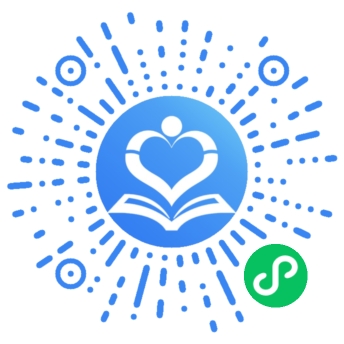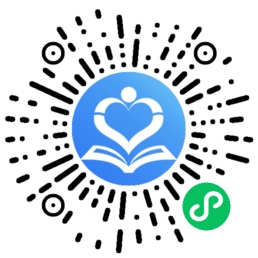中共党史专业介绍
中国共产党历史专业属于法学门类,政治学一级学科,该专业主要研究中国共产党的历史发展、理论政策与实践,探索中国共产党领导中国革命、建设、改革和党的建设的历史经验教训,揭示中国共产党执政规律、社会主义建设规律、人类社会发展规律。
英语单词分类 轻松记单词
1.(用于名词短语之前,指代已经提及或指明的人或物)
You usethe at the beginning of noun groups to refer to someone or something that you have already mentioned or identified.
e.g. A waiter came and hovered. John caught my look and we both got up and, ignoringthe waiter, made our way tothe buffet...
一个侍者走了过来,候在附近。约翰领会了我的眼神,我们两个都站了起来,没有理睬那个侍者,朝自助餐台走去。
e.g. Six ofthe 38 people were Russian citizens.
38 个人中有 6 个是俄罗斯公民。
2.(当名词后接 of 短语或表明身份的从句时,该名词前用the)
You usethe at the beginning of a noun group when the first noun is followed by an 'of' phrase or a clause which identifies the person or thing.
e.g. there has been a slight increase inthe consumption of meat...
肉类消费量略有增长。
e.g. Ofthe 9,660 cases processed last year, only 10 per cent were totally rejected.
去年受理的 9,660 宗案件中,只有 10% 被完全驳回。
3.(用于某些表示人们共有经历的名词前)
You usethe in front of some nouns that refer to something in our general experience of the world.
e.g. It's always hard to speculate aboutthe future...
未来一向很难预测。
e.g. Amy sat outside inthe sun...
埃米坐在外面太阳底下。
4.(用于和日常生活相关的人、物、服务、机构的名词前)
You usethe in front of nouns that refer to people, things, services, or institutions that are associated with everyday life.
e.g. the doctor's on his way...
医生正在路上。
e.g. Who was that onthe phone?...
刚才打电话的是谁啊?
5.(用于代替所有格限定词,尤在谈论身体某一部分或家庭某一成员时)
You usethe instead of a possessive determiner, especially when you are talking about a part of someone's body or a member of their family.
e.g. 'How'sthe family?' — 'Just fine, thank you.'...
“家里人都好吧?”——“都好,谢谢。”
e.g. I patted him onthe head...
我拍了拍他的头。
6.(用于单数名词前,表示一类人或事物)
You usethe in front of a singular noun when you want to make a general statement about things or people of that type.
e.g. An area in whichthe computer has made considerable strides in recent years is in playing chess...
近年来,计算机应用取得长足进步的一个领域是国际象棋。
e.g. After dogs,the horse has hadthe closest relationship with man.
除了狗以外,就数马和人的关系最密切了。
7.(谈论是否会演奏乐器时,用于乐器名称前)
You usethe with the name of a musical instrument when you are talking about someone's ability to play the instrument.
e.g. Did you playthe piano as a child?...
你小时候弹过钢琴吗?
e.g. She was trying to teach him to playthe guitar.
她在试着教他弹吉他。
8.(用于表示国籍的形容词和名词以谈论一国全体国民)
You usethe with nationality adjectives and nouns to talk about the people who live in a country.
the的解释
e.g. the Japanese, Americans, and eventhe French and Germans, judge economic policies by results.
日本人、美国人,甚至法国人和德国人,都依据结果来评判经济政策的好坏。
9.(与 rich, poor, old, unemployed 等形容词连用,表示某一类人)
You usethe with words such as 'rich', 'poor', 'old', or 'unemployed' to refer to all people of a particular type.
the的反义词
e.g. Conditions forthe poor in Los Angeles have not improved.
洛杉矶穷人的境况仍未得到改善。
e.g. ...care forthe elderly andthe disabled.
对老人和残疾人的照顾
10.(用于姓氏的复数前,表示一家人或夫妻)
If you want to refer to a whole family or to a married couple, you can make their surname into a plural and usethe in front of it.
e.g. ...a 400 acre farm owned bythe Allens...
艾伦家的一个面积为 400 英亩的农场
e.g. the Taylors decided that they would employ an architect to dothe work.
泰勒家决定雇个建筑师来干这个活。
11.(用于形容词前,表示其修饰的某个事物)
You usethe in front of an adjective when you are referring to a particular thing that is described by that adjective.
e.g. He knows he's wishing forthe impossible...
他清楚他在期盼一件不可能发生的事。
e.g. I thought you might like to readthe enclosed.
我想你或许想要读一下信封里的内容。
12.(表示拥有为某一特定目的所需的足够的某物)
You usethe to indicate that you have enough of the thing mentioned for a particular purpose.
e.g. She may not havethe money to maintain or restore her property...
她可能没有足够的钱来维护或修葺她的房产。
e.g. We must havethe patience to continue to work until we will find a peaceful solution...
我们一定要耐下心来继续努力,直到找出和平的解决方案为止。
13.(与某些称号、地名和其他名称连用)
You usethe with some titles, place names, and other names.
the的近义词
e.g. the company was alleged to have leakedthe news tothe Daily Mail.
据称,那家公司将消息透露给了《每日邮报》。
e.g. ...the Albert Hall...
艾伯特音乐厅
14.(用于序数词前)
You usethe in front of numbers such as first, second, and third.
the
e.g. the meeting should take place onthe fifth of May...
会议将会于 5 月 5 日举行。
e.g. Marco Polo is said to have sailed onthe Pacific on his way to Java inthe thirteenth century...
据说,13 世纪时,马可·波罗在去爪哇岛的途中在太平洋上航行过。
15.(用于表示年代的数字前)
You usethe in front of numbers when they refer to decades.
the
e.g. It's sometimes hard to imagine how bad things were inthe thirties.
有时很难想象 30 年代的日子有多么困难。
16.(用于形容词和副词的最高级前)
You usethe in front of superlative adjectives and adverbs.
e.g. Brisk daily walks are stillthe best exercise for young and old alike...
不管年轻人还是老人,每天快步行走仍是最好的锻炼方式。
e.g. the Mayor of West Berlin describedthe Germans asthe happiest people inthe world...
西柏林市长称德国人是世界上最幸福的人。
17.越…越…(用于两个比较级前,表示其中一个随另一个发生量或质的变化)
You usethe in front of each of two comparative adjectives or adverbs when you are describing how one amount or quality changes in relation to another.
the在线翻译
e.g. the longer you have been in shape inthe past,the quicker you will regain fitness in future...
过去健美身形保持的时间越长,将来身材恢复得就越快。
e.g. the more confidence you build up in yourself,the greater are your chances of success.
树立的自信心越强,成功的把握就越大。
18.每,一(表示速度、价格、度量等)
When you express rates, prices, and measurements, you can usethe to say how many units apply to each of the items being measured.
the
e.g. New Japanese cars averaged 13 km tothe litre in 1981...
1981 年,新型的日产汽车平均每升汽油能跑 13 千米。
e.g. Some analysts predicted thatthe exchange rate would soon be $2 tothe pound.
一些分析人士预测,英镑对美元的汇率将很快达到1:2。
19.(表示某人或某物是同类中最有名、最重要或最好的。口语中 the 要重读;书面语中常加下划线或用大写、斜体)
You usethe to indicate that something or someone is the most famous, important, or best thing of its kind. In spoken English, you put more stress on it, and in written English, you often underline it or write it in capitals or italics.
e.g. Camden Market isthe place to be on a Saturday or Sunday...
卡姆登市场是周末的最佳去处。
e.g. 'Olympia is in America, where K Records was founded.' — 'No! Surely you don't meanthe K Records?'
“奥林匹亚在美国,K 唱片公司就是在那里创立的。”——“不可能!你不会指那个大名鼎鼎的 K 唱片公司吧?”
I reached the gate that opened towards the lake.
我走到临湖而开的那扇门前。
Is it necessary for me to attend the meeting?
我真的必须参加这个会议吗?
the electrical installations are very old.
这些装置那么残旧。
Don't worry. the dangerous criminals have all been locked up.
别担心,那些危险的犯罪分子都被关起来了。
I want the larger television.
我想要那台较大的电视机。
Marilyn Monroe is the most famous of all american movie queens.
玛丽莲·梦露是全美最著名的影后。
the more he has, the more he wants.
他得到越多,想要的也越多。
the best thing to do when entering unknown territory is smile.
踏入未知地带最好的对策就是微笑。
the world breaks everyone, and afterward, many are stronger at the broken places.
生活总是让我们遍体鳞伤,但到后来,那些受伤的地方会变得更坚强。
Carpe diem. Seize the day, boys. Make your lives extraordinary.
人生就应该是快乐的,要抓住每一天,孩子们,让你们的生活变得非凡起来。
When life gets hard and you want to give up, remember that life is full of ups and downs, and without the downs, the ups would mean nothing.
当生活很艰难,你想要放弃的时候,请记住,生活充满了起起落落,如果没有低谷,那站在高处也失去了意义。
the happiest are not those who own all the best things, but those who can appreciate the beauty of life.
最幸福的人们并不一定什么都是最好,只是他们懂得欣赏生活的美好。
Eventually, you'll learn to cry that on the inside.
终有一天,你会学会让泪往心里流。
Success is not final, failure is not fatal: it is the courage to continue that counts.--Winston Churchill
成功不是终点,失败也并非末日,最重要的是继续前进的勇气。
If you're not satisfied with the life you're living, don't just complain. Do something about it.
对于现况的不满,不能只是抱怨,要有勇气作出改变。
the turning point in the process of growing up is when you discover the core of strength within you that survives all hurt.
当你从内心深处找到一种可以忍受一切痛苦的坚强力量时,你的成长历程就会出现飞跃。
Friendship means understanding, not agreement. It means forgiveness, not forgetting.It means the memories last, even if contact is lost.
友情是理解,不是妥协;是原谅,不是遗忘。即使不联系,感情依然在。
the difference between who you are and who you want to be is what you do.
你是什么样的人和你想成为什么样的之间的差距就是,你做了什么。
She went directly to Simon's apartment and knocked on the door.
她直奔西蒙的房间,敲了敲门。
they have maintained their optimism in the face of desolating subjugation.
面对遭征服的悲惨命运,他们保持了乐观的态度。
He was well acquainted with the literature of France, Germany and Holland.
他对于法国、德国和荷兰的文学了如指掌。
What will be the effect of the alliance between IBM and Apple?
若IBM公司和苹果公司联手将会有什么效果呢?
the Queene was..in her..riding habit.
出自:EvelynWhat's the matter now?
出自:W. CongreveMake the Revolution a parent of settlement, and not a nursery of future revolutions.
出自:BurkeAs shines the moon in clouded skies.
出自:TennysonI will come and wake thee on the morrow.
出自:J. H. NewmanIn a hole in the ground there lived a hobbit.
出自:Tolkienthe gate squeaked at his entrance.
出自:S. HoodGambling debts in the hundreds of thousands of dollars.
出自:New Yorker新年快乐
A:Here’s tothe New Year!
祝贺新年!
B:Cheers!
干杯!
培训
A:How wasthe (counselor/ weather/ test)?
(辅导员/天气/测验)怎么样?
B:Fine.
不错。
保险
the是什么意思
A:What’sthe problem?
什么问题?
the在线翻译
B:I think I broke my (leg/ amp3/ finger).
我象是弄断了(腿/手臂/手指)。
四川高考志愿填报方式:1、进入页面;2、修改密码;3、填报须知;4、查看个人基本信息;5、志愿类别选择;6、填写志愿和修改志愿;7、填写或修改志愿结束后,单击页面底部的[保存并提交]按钮,则所填写的志愿数据将得到保存,保存即表示该批次志愿已经提交。
高考成绩一般都会在考后15天左右公布,不过不同省份查询时间有所差别,具体以各省份发布时间为准。并且全国各省份高考成绩公布时间有所不同,不全在同一天,但绝大部分省市都集中在6月24日、6月25日两天公布高考成绩,有些省份会更早一点。
中国共产党历史专业属于法学门类,政治学一级学科,该专业主要研究中国共产党的历史发展、理论政策与实践,探索中国共产党领导中国革命、建设、改革和党的建设的历史经验教训,揭示中国共产党执政规律、社会主义建设规律、人类社会发展规律。
小学教育专业属于教育学门类、教育学一级学科,是我国教师教育体系的重要组成部分。小学教育专业坚持学高为师、身正为范。其主要培养德、智、体、美、劳全面发展,具备专业化的小学教师素养,能在小学及相关行业从事教育、教学和管理等方面工作的复合型人才。
钢琴伴奏作为一门中国普通高等学校的专科专业,属于文化艺术大类中的表演艺术类,修业年限为三年。该专业的目的是培养了解钢琴伴奏的基本理论知识和方法,具备较好的音乐创造能力,从事钢琴伴奏、艺术指导、钢琴演奏、教学辅导等工作的高素质技术技能人才。
影视多媒体技术专业是一门专科专业,属于新闻传播大类中的广播影视类。开设该专业的目的是培养全面发展,具有良好职业道德和人文素养,掌握影视多媒体技术基本知识和技能,具备影视后期制作、影视包装设计能力,从事影视编辑的高素质技术技能人才。
虚拟现实技术应用是一门互联网专业,属于电子与信息大类中的计算机类,基本修业年限为三年。专业主要研究仿真技术与三维计算机图形技术等方面基本知识和技能,具备虚拟现实软硬件平台设备搭建,从事虚拟现实、开发、调试等工作的高素质技术技能人才。
更多内容
关注微信小程序
学路英语小程序
 微信扫一扫,加入小程序
微信扫一扫,加入小程序
学路学习小程序
 微信扫一扫,加入小程序
微信扫一扫,加入小程序
学路高考小程序
 微信扫一扫,加入小程序
微信扫一扫,加入小程序
学路学习APP
 扫一扫,下载app
扫一扫,下载app